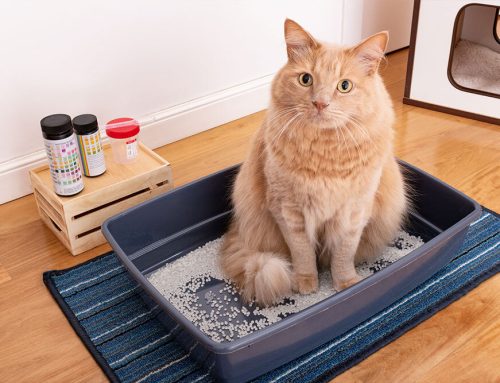Dietary indiscretions and obesity increase your pet’s risk for pancreatitis, a condition all pet owners should know about, since this disease can cause your pet extreme pain, and have fatal consequences. Our team at Driftwood Animal Hospital wants to provide information about this concerning issue, to help decrease the threat to your pet.
Pancreatitis in pets—the basics
The pancreas is a small, seemingly innocuous, organ that sits under your pet’s stomach, and runs along their small intestine. Two components make up the pancreas, with each part having different jobs to fulfill.
- Endocrine pancreas — The endocrine pancreas secretes hormones from islet cells, including insulin and glucagon, that regulate glucose.
- Exocrine pancreas — The exocrine pancreas produces digestive enzymes, including trypsin and chymotrypsin to break down proteins, amylase to digest carbohydrates, and lipase to digest fats.
Typically, the digestive enzymes remain inert until they are transported to the small intestine via the pancreatic duct. However, in certain cases, they can be prematurely activated, resulting in the digestion of the pancreas and surrounding tissues. This condition is called pancreatitis, and can be extremely painful for affected pets. Signs include lethargy, inappetence, vomiting, and a hunched posture. While the triggering event is not identified in many pancreatitis cases, certain circumstances are known to cause the condition.
- Dietary indiscretions — Eating table offerings or scraps from the garbage, especially high-fat foods, can trigger pancreatitis, because the islet cells must make excess digestive enzymes to digest the rich meal.
- Obesity — Being overweight can put your pet at higher risk, because their fat metabolism is altered.
- Breed — Certain breeds are predisposed to pancreatitis, including miniature schnauzers, cocker spaniels, and miniature poodles.
- Concurrent disease — Being affected by other diseases, including diabetes mellitus, hypothyroidism, hyperadrenocorticism, and hypercalcemia, puts your pet at higher risk.
- Medications — Taking medications that include sulfa-containing antibiotics, anti-seizure medications, and chemotherapy agents puts your pet at increased risk.
- Trauma — If your pet experiences trauma to their pancreas (e.g., during a car accident, or surgery), they are at higher risk.
- Tumor — Pancreatic tumors can cause inflammation to the pancreatic tissue, resulting in pancreatitis.
- Pancreatic duct backflow — The small intestinal wall contains cells that secrete enzymes that activate the digestive enzymes produced by the pancreas. If fluid from the small intestine backflows down the pancreatic duct to the pancreas, these enzymes can prematurely activate trypsin, chymotrypsin, amylase, and lipase.
Pancreatitis in pets—the critical consequences
When the pancreas becomes inflamed, the effects can be widespread, causing serious consequences throughout your pet’s body.
- Disseminated intravascular coagulation (DIC) — Pancreatitis is one of the most prevalent triggers that causes DIC. This condition always occurs secondary to a serious disease process that causes blood vessel wall damage, sluggish blood flow, or foreign elements in the bloodstream. Initially, blood clots form inappropriately throughout the body, depleting the clotting factors that usually control bleeding. This, in turn, results in excessive bleeding throughout the body. If blood clots form in vessels supplying major organs, organ failure and uncontrolled hemorrhaging can occur.
- Systemic inflammatory response syndrome (SIRS) — The extreme inflammatory response in the pancreatic tissue can result in the depletion of inflammatory mediators responsible for controlling the inflammatory spread. When this occurs, the inflammation can spread throughout the body, damaging major organs. Organ failure can occur, if the damage becomes significant.
- Pancreatic encephalopathy — Brain cells contain fatty components, and nerves are surrounded by fatty protective tissue. When widespread inflammation occurs, these tissues can be damaged, resulting in brain swelling. Signs include disorientation, ataxia, convulsions, and death.
- Pancreatic infection — The severe pancreatic inflammation causes the blood supply to the pancreas to be compromised, resulting in some tissue death. These necrotic areas are prone to bacterial infection, which can easily be transported by the bloodstream to other organs, causing damage, and potential organ failure.
Pancreatitis in pets—the persistent consequences
Surviving an initial pancreatitis episode does not prevent your pet from experiencing significant, persistent health issues.
- Recurring bouts — Pets who have experienced pancreatitis are predisposed to recurrent bouts, and must be monitored and managed, to help prevent episodes.
- Diabetes mellitus — If the inflammation significantly damages the islet cells that produce insulin, glucose will accumulate in the bloodstream. Hyperglycemia causes damage to several organs, including the kidneys, heart, eyes, blood vessels, and nerves. Daily blood glucose monitoring and insulin injections will be required for your pet’s lifetime.
- Exocrine pancreatic insufficiency (EPI) — If the inflammation significantly damages the cells secreting digestive enzymes, your pet will not be able to digest and absorb nutrients appropriately. This causes them to have an increased appetite, oily feces, unkempt hair coat, and weight loss. Pancreatic enzyme supplementation and a special diet will be required for the rest of their life.
Pancreatitis in pets—the prevention

Some pancreatitis cases are unpreventable, but you can take steps to decrease your pet’s risk.
- Weight — Ensure you keep your pet at an ideal weight, by feeding them an appropriate food, in an appropriate amount, and by providing daily exercise.
- People food — Refrain from giving your pet table scraps. Any dietary change can cause gastrointestinal upset, and fatty foods can trigger pancreatitis.
- Dumpster diving — Ensure your pet cannot scavenge scraps from the garbage.
By following these steps, you can decrease your pet’s risk for pancreatitis. If your pet is overweight, contact our Driftwood Animal Hospital team, so we can develop a weight loss plan that is right for your pet.








Leave A Comment